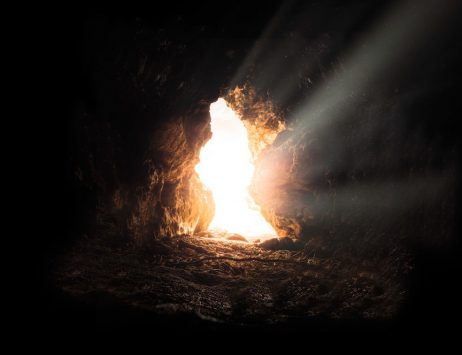On the third Sunday of Lent, we hear St. John’s account of how Jesus, early in his ministry, observed the great feast of Passover in Jerusalem’s temple with a show of anger and prophetic force. Read about it here: https://www.catholicbiblepress.com/2021/03/03/liturgical-reading-for-the-week-of-march-7-2021/
Humans must have a natural impulse to build temples. When we have powerful experiences of God, we want to share them with our neighbors and with future generations. We memorialize them with festival, ritual storytelling, visual art, and song. By remembering who God has been for us, we can come to God with a renewed sense of wonder and glory, and we can offer what most glorifies God: generous acts born of a grateful heart.
Certainly this was on David’s mind when he announced his intention to turn the shabby tent of meeting into a great edifice of stone and splendor (2 Samuel 7:2). Centuries later, threatened with the erasure of their history, the descendants of David who returned to Judea after their exile in Babylon immediately made plans to rebuild the ruined temple, enshrining their relationship with God once again in Jerusalem (Ezra 1:1-6). By Jesus’ time, the second temple was once again a thriving center of festival, worship, and sacrifice.
But Jesus did not discover in Jerusalem a shrine to God marked by authentic thanksgiving and openhanded giving. Enraged by the economy that had grown up around temple sacrifice, Jesus scatters the cash earned by pop-up bankers making a profit on currency exchange and frees the animals held for slaughter. In other versions of the story, Jesus contrasts the temple business with its true purpose, to be a house of prayer (Matthew 21:12–17; Mark 11:15–19; Luke 19:45–48). In John’s gospel, he simply utters a command: “Stop making my Father’s house a marketplace.”
Its beautiful colonnades were not enough to remind the religious authorities that such exploitation was blasphemous. Its processions and songs had failed to inspire what David had said: “My sacrifice is a humble and contrite heart” (Psalm 51). Its holiest festivals were an opportunity for the outwardly pious to win the esteem of others. No, the temple had become a place for the clever to profit on the religious devotion of others. Its destruction would come soon.
If it is in the nature of humans to build temples, it is in the nature of God to exceed their capacity. As the prophet Nathan (check) reminded David millennia before, building a temple to house the living God is a complicated business (2 Samuel 7:4-7). What building can house the one in whom the cosmos is contained? How can fixtures of rock and precious metal express the unending expansiveness and infinite movement that is the life of God? What offerings can we give God who gives us all we have to give?
Nevertheless, we continue to build temples. We make them out of church buildings, or out of groups of people, or out of our favorite spiritual authors and gurus. We make temples of special feelings and pious thoughts, or of systematized religious knowledge. We anticipate God’s arrival in our safe space hewn out of memory and expectation. And, if the history of Israel is any indication, when our temples cease to be a fit habitation for God’s glory, God bursts them open. We always seem to be starting over.
“Destroy this temple, and I will raise it up in three days.” Even the earthly flesh of Jesus was, in a sense, a temporary dwelling place for God’s glory. So, as we anticipate the joys of Easter in these somber Lenten days, we remember that the true temple of God is the body of the risen Lord Jesus. Not just the divinized individuality of Jesus of Nazareth, but the glorification of Christ’s whole mystical body, scattered throughout human history. The temple that befits God’s glory is all of us, delivered from our dying lives into eternal and joyful communion with one another, united with our risen Lord as the firstborn from the dead. We’ll keep building our temples. God will keep knocking them down. And, through our fallings and our risings, our dyings and rebirths, perhaps we’ll catch a glimpse of this true temple — and we’ll offer up what most glorifies God: generous acts born of a grateful heart.



